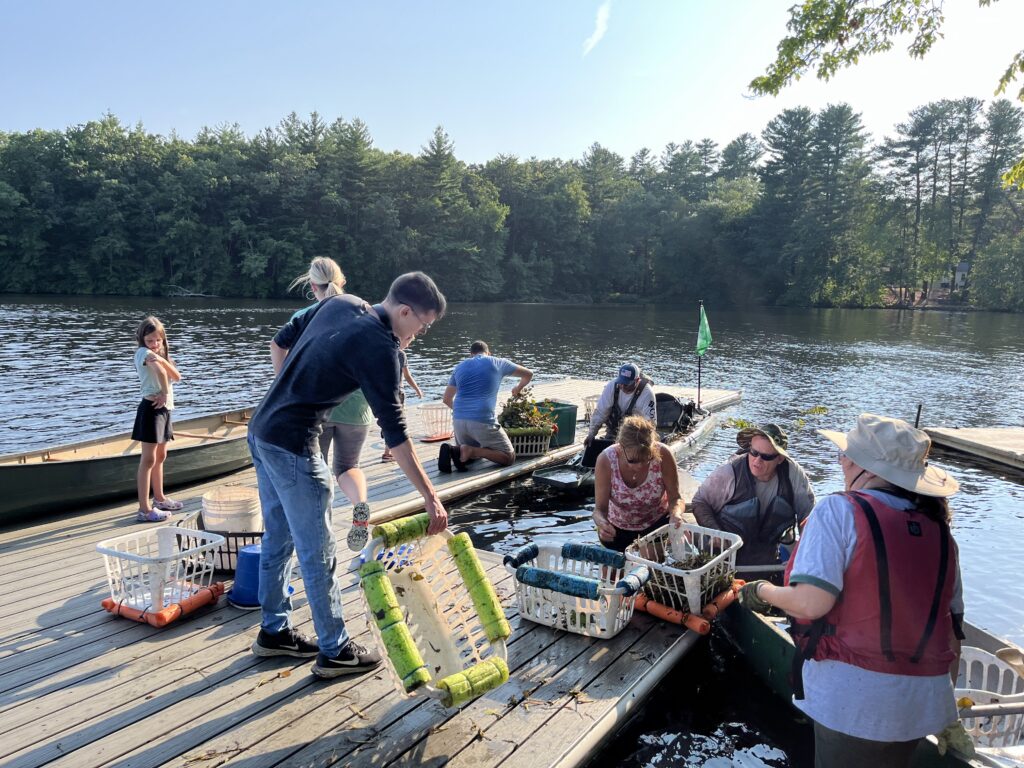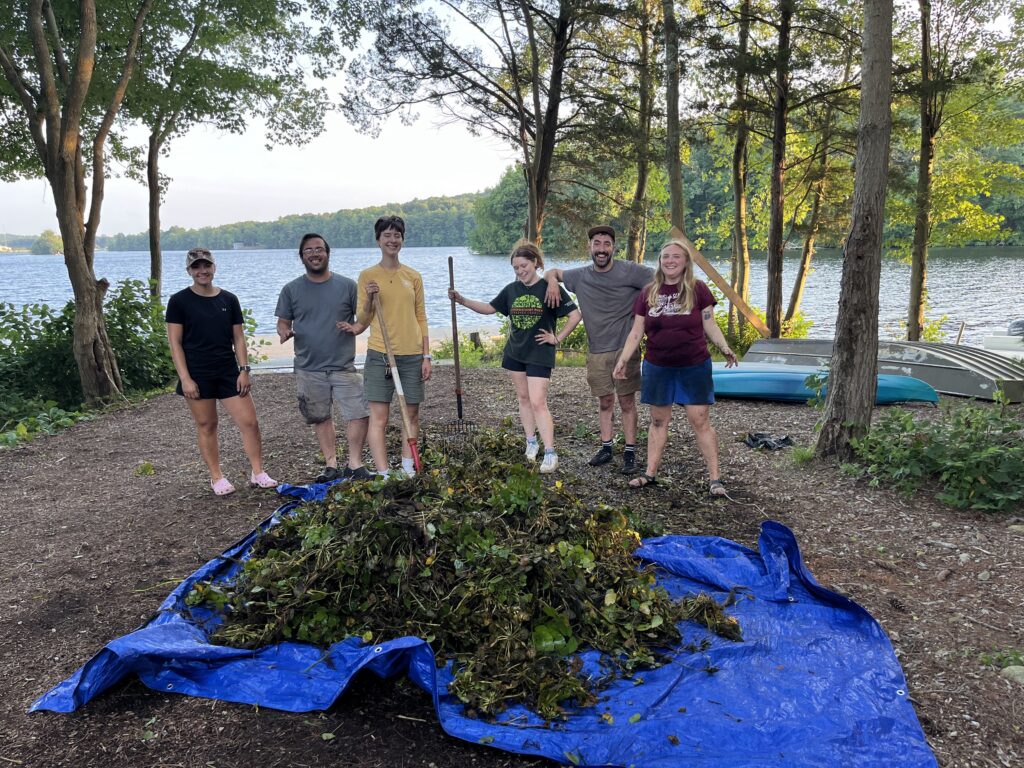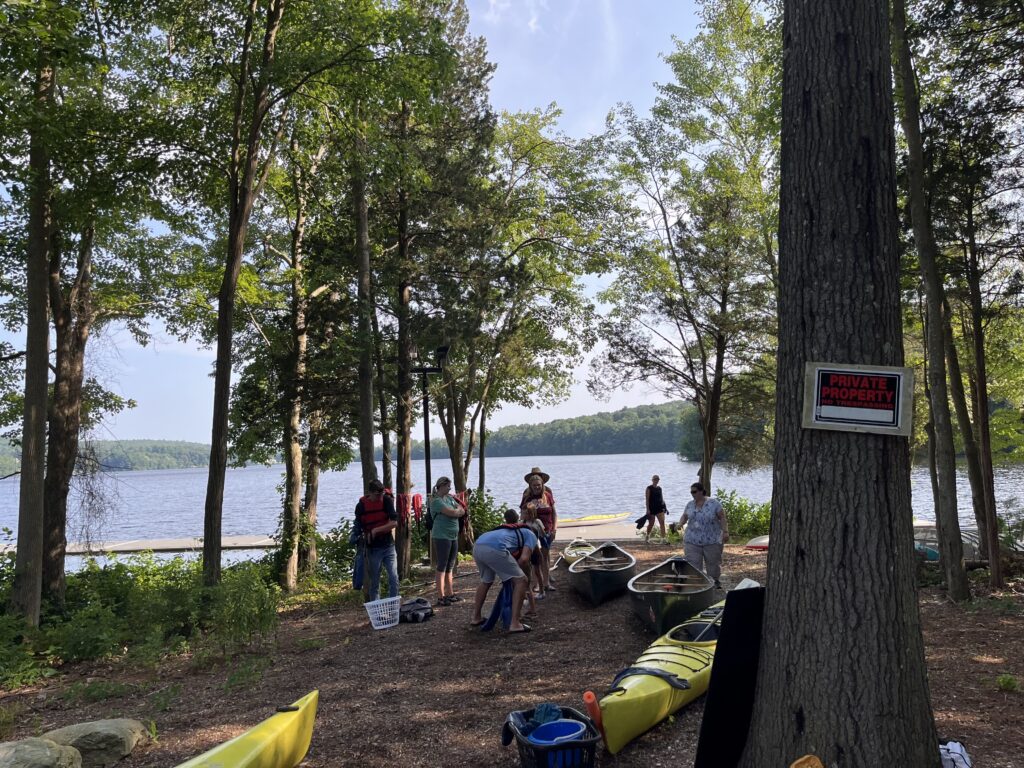
We’re thrilled to share the success of our recent water chestnut removal event at Stump Pond. Despite the scorching heat and long hours, our dedicated volunteers turned out in force and made a significant impact on the health of our local waters.
A Day of Hard Work and Great Results
Thanks to the combined efforts of our volunteers, we launched 20 canoes and kayaks into Stump Pond, removing more than 2,000 pounds of invasive water chestnut plants. This impressive pile is now safely composting at the Leo Bouchard Environmental Center, a crucial step in preserving the pond’s ecosystem.
The water chestnut is a highly aggressive aquatic plant native to Asia. It forms dense mats that block sunlight, displace native plants, and disrupt recreational activities. We rely on volunteers to hand-pull and collect these plants before their seeds form at the end of July. Your help is crucial in managing this invasive species.

Heartfelt Thanks to Our Supporters
We owe a special thanks to Bryant University and B&F Associates for their generous support. Their provision of the dock and the lot as our base of operations was instrumental to the success of our mission.
John Marsland from the Blackstone River Watershed Council also deserves our gratitude for donating all the baskets used during the removal. Your contribution was a key element in our success.
Shout-Out to Our Recreation Team
A big thank you goes to our Recreation Directors, Erik and Andrew. Their boating expertise and humor kept the team’s spirits high and the work efficient.

Appreciation for Our Partners
We also want to acknowledge Katie and the interns from the Department of Environmental Management. Your unwavering support throughout the process was invaluable.
Looking Ahead
Your hard work has made a noticeable difference in the health of Stump Pond. We’re incredibly grateful for your dedication and efforts. Together, we’ve made a positive impact on our local environment!
Get Involved
Interested in learning more about water chestnuts and other invasive plant initiatives in Rhode Island? Contact Katie at katie.degoosh@dem.ri.gov.
If you’d like to volunteer with WRWC or update your email preferences, sign up here.
Thank you again for your incredible support and hard work!
